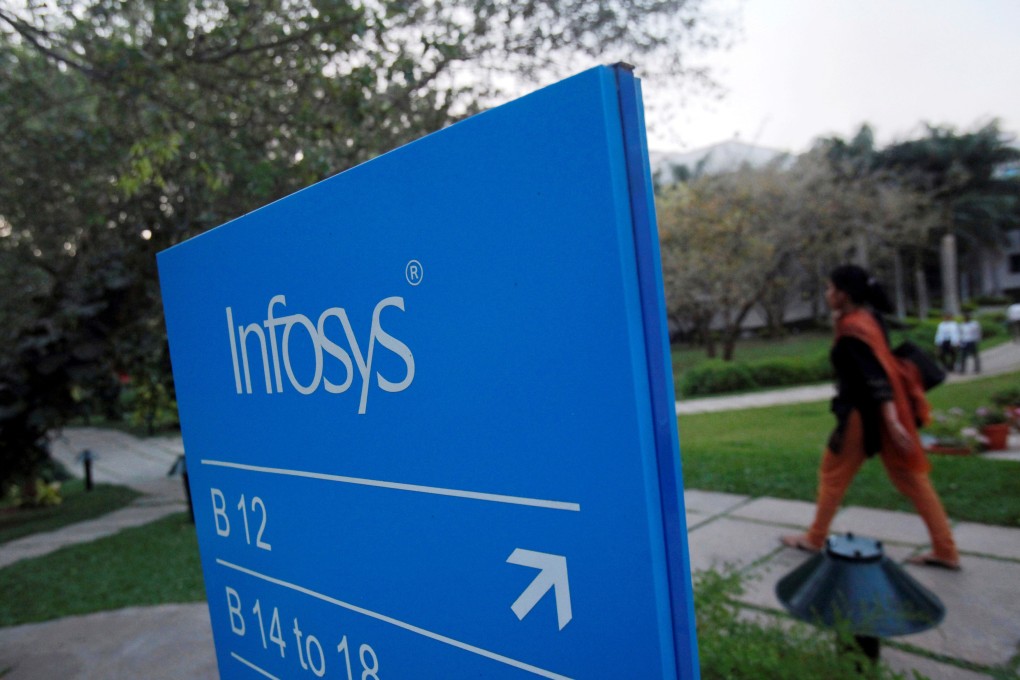As Indian tech giant Infosys tackles whistle-blower complaints, its chairman invokes God
- The firm said it ‘strongly condemns the mischievous insinuations’ that unethical practices had been used to boost revenue and profit
- An investigation is ongoing, but analysts said Infosys’ approach to the controversy is emblematic of deep rooted problems in corporate India

Indian software maker Infosys has dug in its heels over whistle-blower complaints about its finances, with non-executive chairman Nandan Nilekani declaring on Wednesday: “Even God cannot change Infosys’ numbers”.
Nilekani was responding to analysts’ questions on a conference call and his combative response reflects how the IT services giant, which reported US$12.4 billion in revenue for the final quarter of last financial year, is handling the accusations.
He added that “customers are supportive” and despite the “distraction”, Infosys CEO Salil Parekh had informed him about a “large deal” recently.
Nilekani threw the board’s weight firmly behind the Infosys leadership team, effectively repeating the company’s earlier stance that there has been no wrongdoing on the part of the management even though the probe is still not complete.

“Infosys strongly condemns the mischievous insinuations made by anonymous sources against the co-founders and former colleagues, suggesting their involvement in the recent whistle-blower allegations,” he said in an official statement.